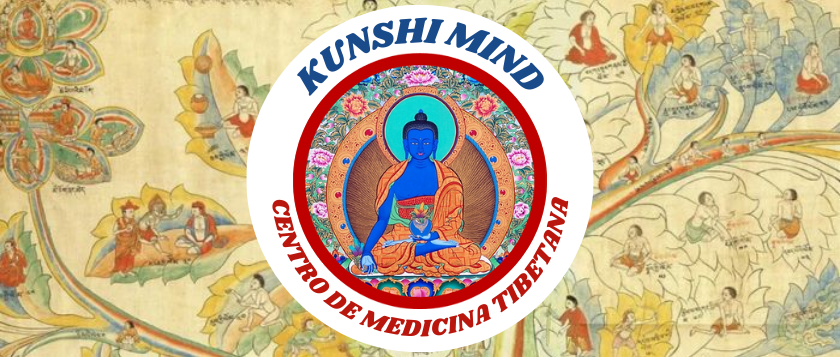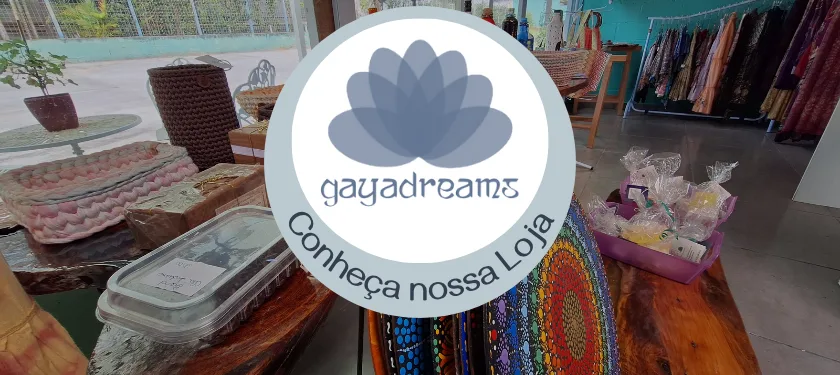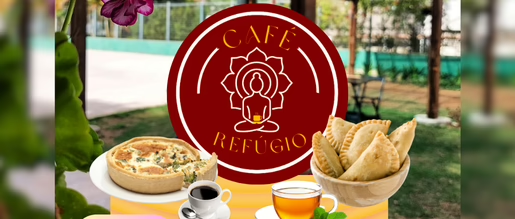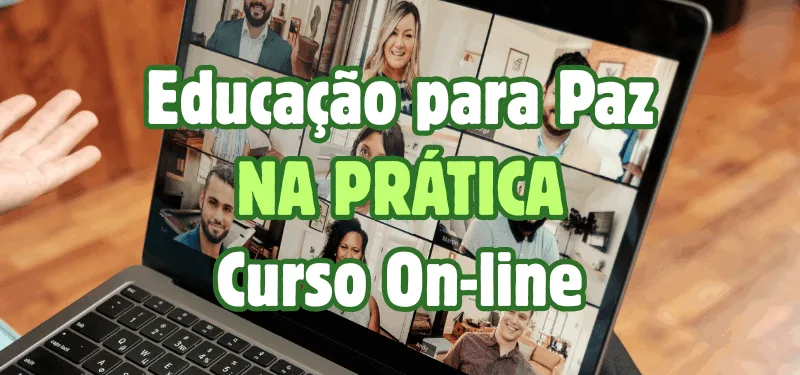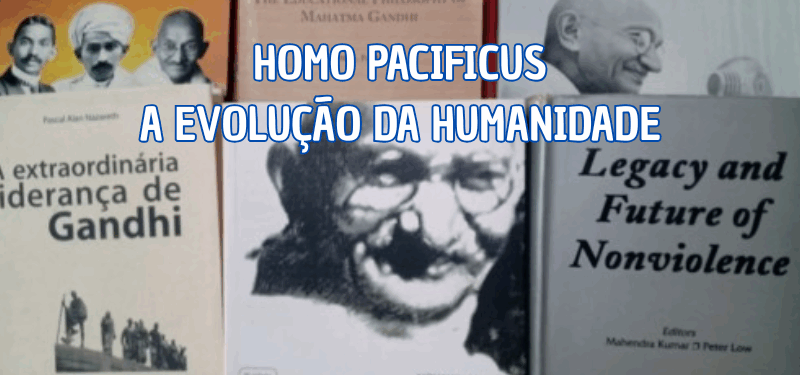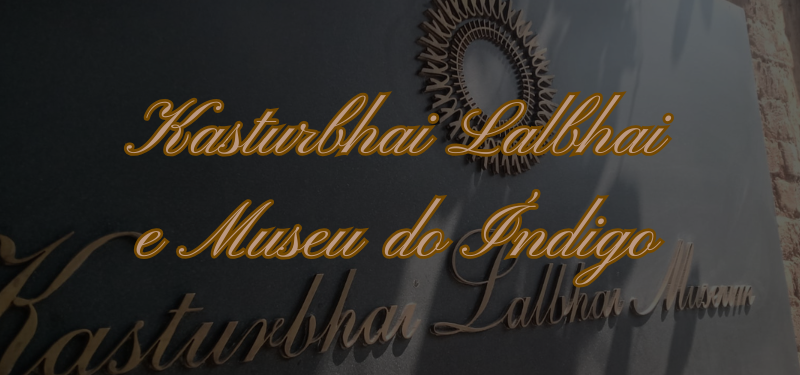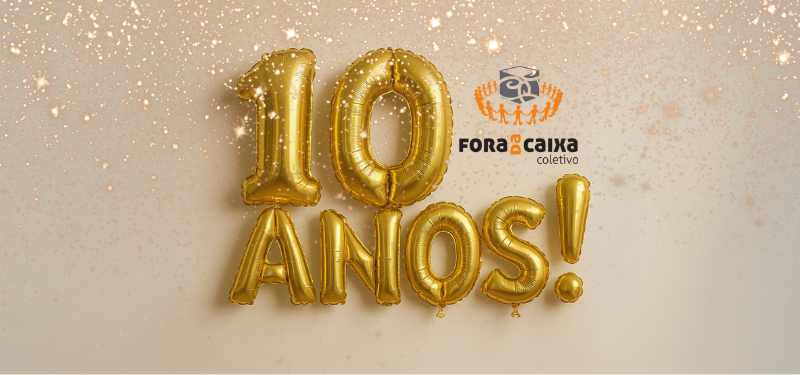Peace Education and Ecocitizenship
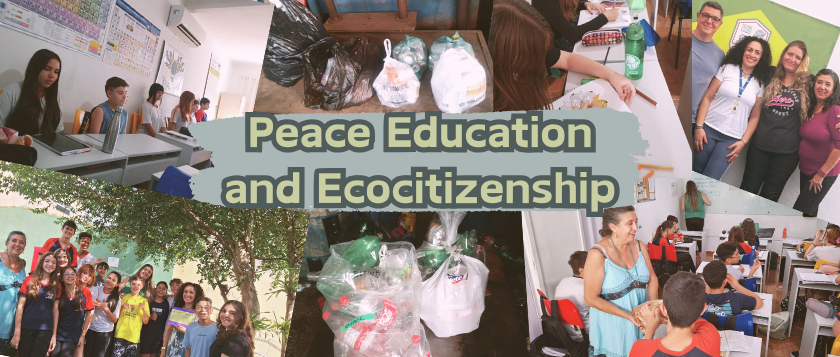
The project of Peace Education developed by the team of Fora da Caixa Cultural Collective in partnership with the Educational Institute André Luiz since 2018 entered a new phase this year. In recent years our main focus has been Leadership and Emotional Health, we presented participants with an overview of the pacifist and non-violent movements of the 20th century, we also studied the biography of personalities who stood out for their ethical conduct, spirit of service and dedication to human values.
This inspiration was shared through documentaries, research, lectures and conversation circles. Silent meditation and contemplation practices served as support to reduce the level of anxiety and increase focus during meetings. We started 2024 aware that the moment called for more effective actions in relation to environmental preservation. With temperatures above average, torrential rain, floods, extreme cold in other regions of the planet and the lack of a disaster prevention program, we feel in a situation of vulnerability and helplessness when we are affected by the consequences of these extreme events.
The saddest thing is to see the degradation of Nature without the implementation of actions that mobilize individuals to do their part, even if minimal, in order to alleviate the effects of destruction. Young people and children, who will soon be the most harmed. They will suffer with the effects of global warming and the neglect that governments deal with these issues. Therefore, it is necessary to raise their awareness and get engaged as soon as possible in the search for solutions. We need to reflect with young people on the current situation and open their minds so that they do not wait for “adults” to solve problems. Actually it is the adults who put us in this situation and, if we don’t take action on a daily basis, we may not have time to save the planet for future generations. Talking is not enough, being a Facebook activist is not enough, from now on only real actions count. But where to start? How to raise awareness among young people about the issue of sustainability, preservation, waste reduction, reverse logistics, changes in behavior in relation to consumerism, excess packaging and foods without pesticides? There are so many issues that need to be addressed that if we don’t expose it in a clear, organized and in-depth manner, we will have no engagement and no change.
Money found in the trash
The starting point for our Ecocitizenship project was to change the perception that young people had about issues related to what we throw away in the trash. We instructed children and young people on how to contribute with actions to reduce the volume of waste, we looked for partners and the means available in our community to give a correct destination to material with potential for recycling, thus helping to remove from nature and common waste things that can be reused or recycled. The results presented here refer to the period from March to November 2024.
We thought that this would be a way to prevent these materials from ending up in common trash, as in Brazil less than 3% of trash is destined for recycling and in our city there is no selective collection. Thus, by selling the collected material we could generate funds for the group. We started with a few bags per week, but little by little we realized that the young people’s engagement was so great that we had to collect twice a week as the collection volume increased a lot. Within a few weeks we had to store it in another location because there was no longer enough space in my garage. Below is an image of the first collection and then an image of the “mountain of pet bottles” from one of the places where we take our pets to sell.
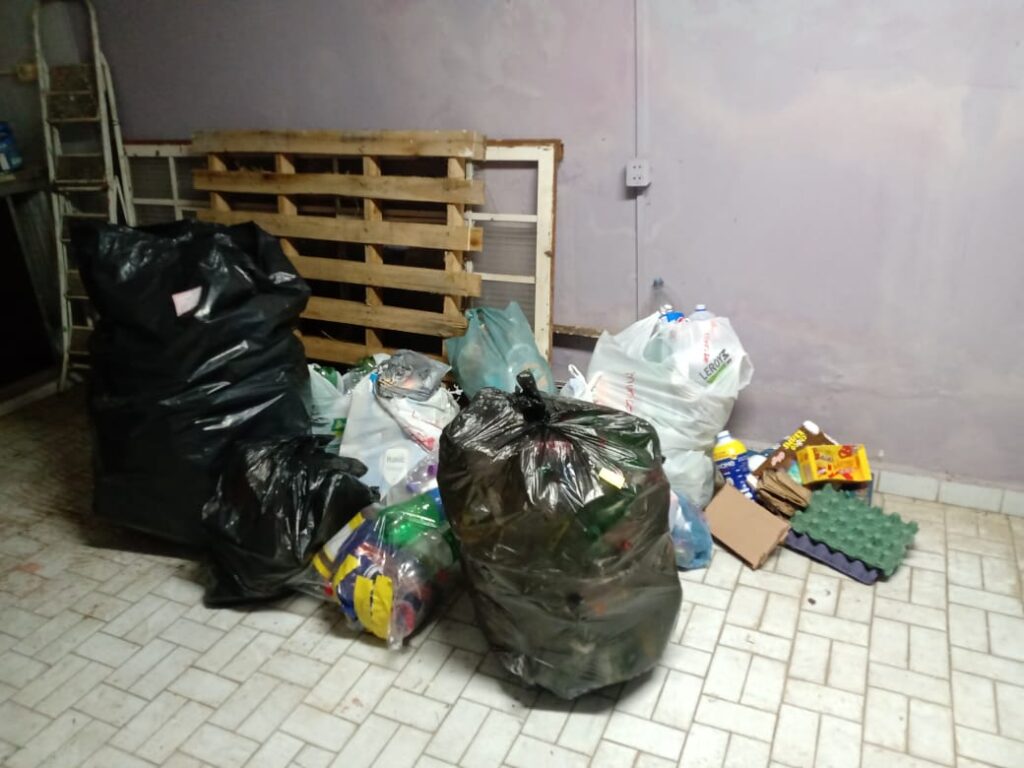
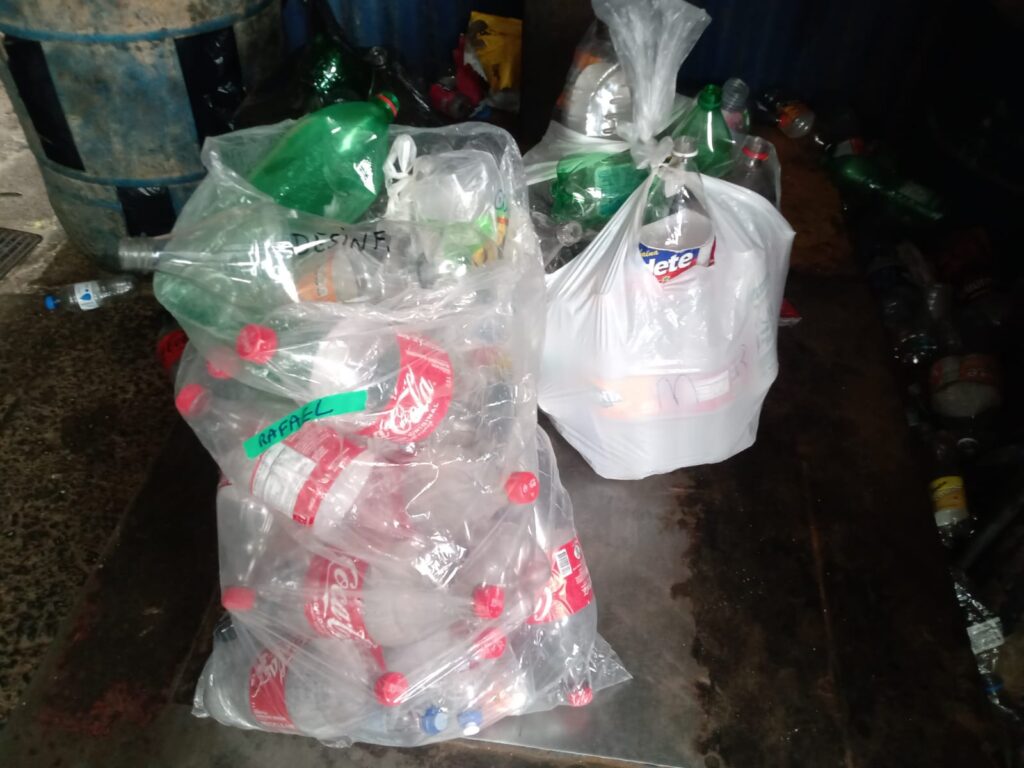
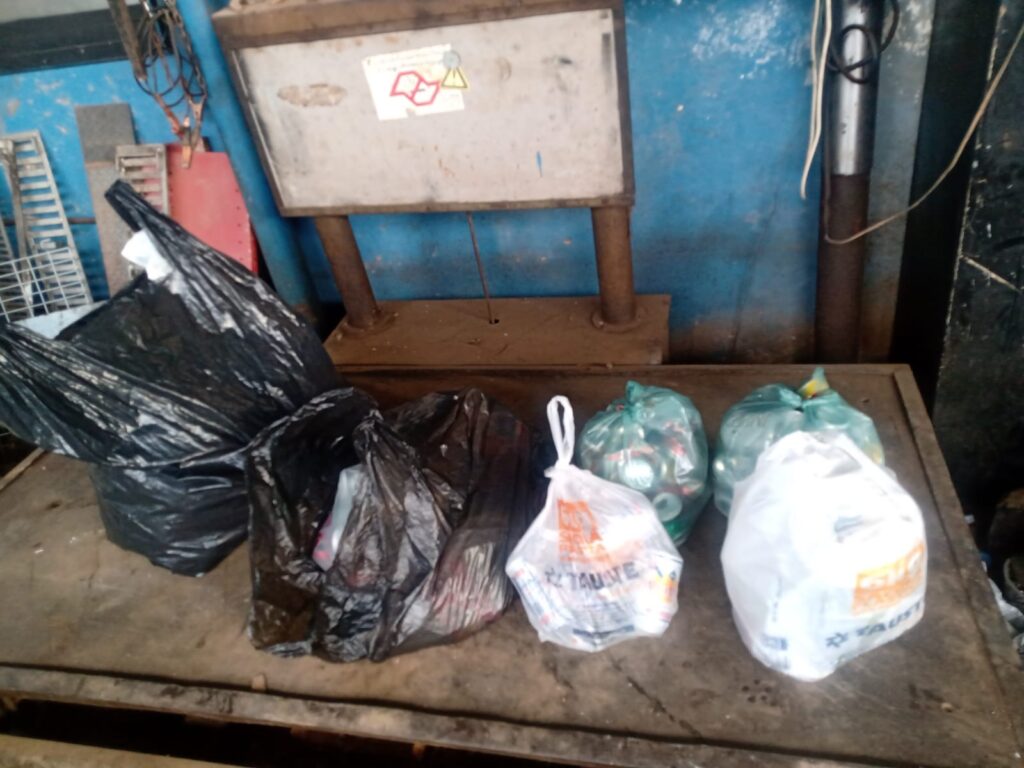
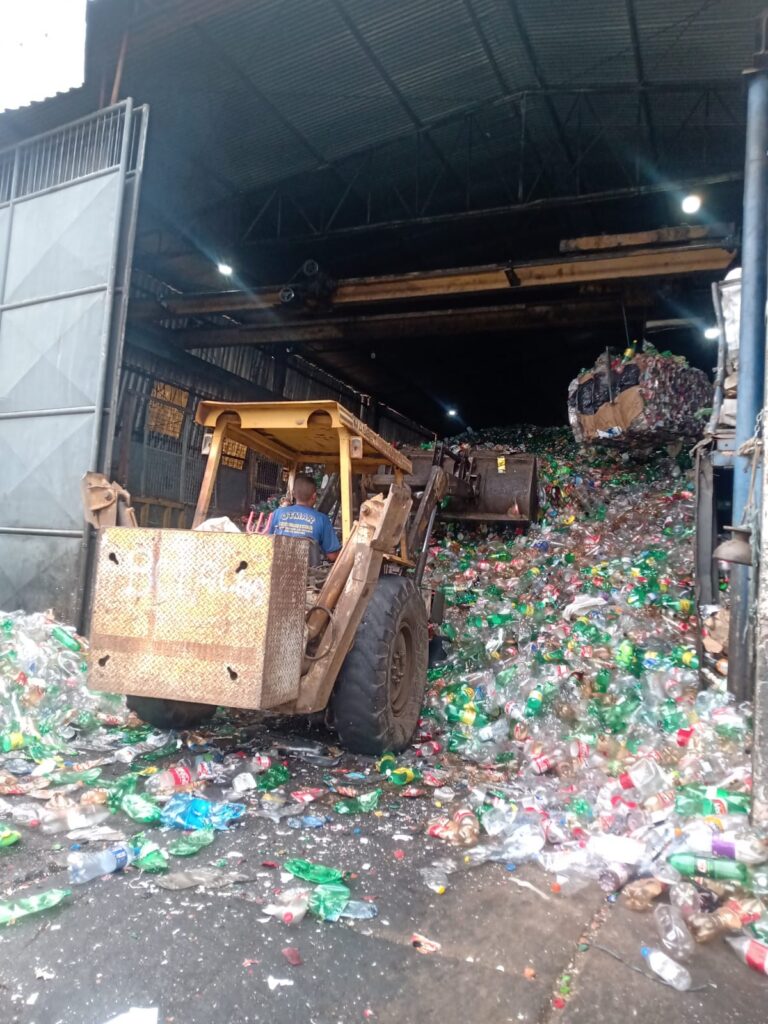
Precisely because of the engagement and willingness of our young people to gather recyclable material, we realized that the idea had already been incorporated into their routines. Families also mobilized, asking friends, relatives, church members and the community to collect this material and deliver it to the project.
Perhaps this action will only have a local impact, with results in our surroundings, but we were surprised by the immediate acceptance and incorporation of the values of respect and protection for Nature. We realized that even with small actions we can change the planet for the better. Below, some of the recyclables collected in the last two months. Our group is small and yet the results were incredible. Can you imagine if all schools and communities engage to remove pet bottles, aluminum cans and electronic waste from common trash? The planet would be a much less polluted place and Nature would be more respected. Big things start from small actions, we believe in that a lot.
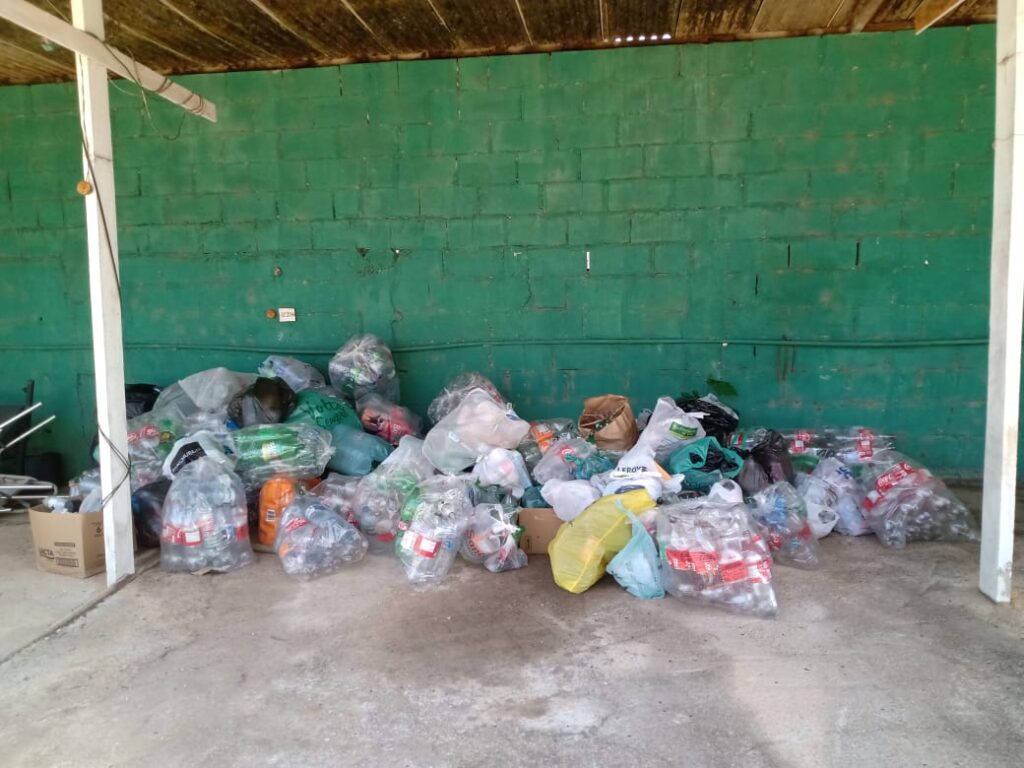
When we started the project, only young people participated in the project, after a few weeks the children also joined the group and started bringing recyclables too. They also received a presentation about the Ecocitizenship program and were instructed on how they could help the planet.
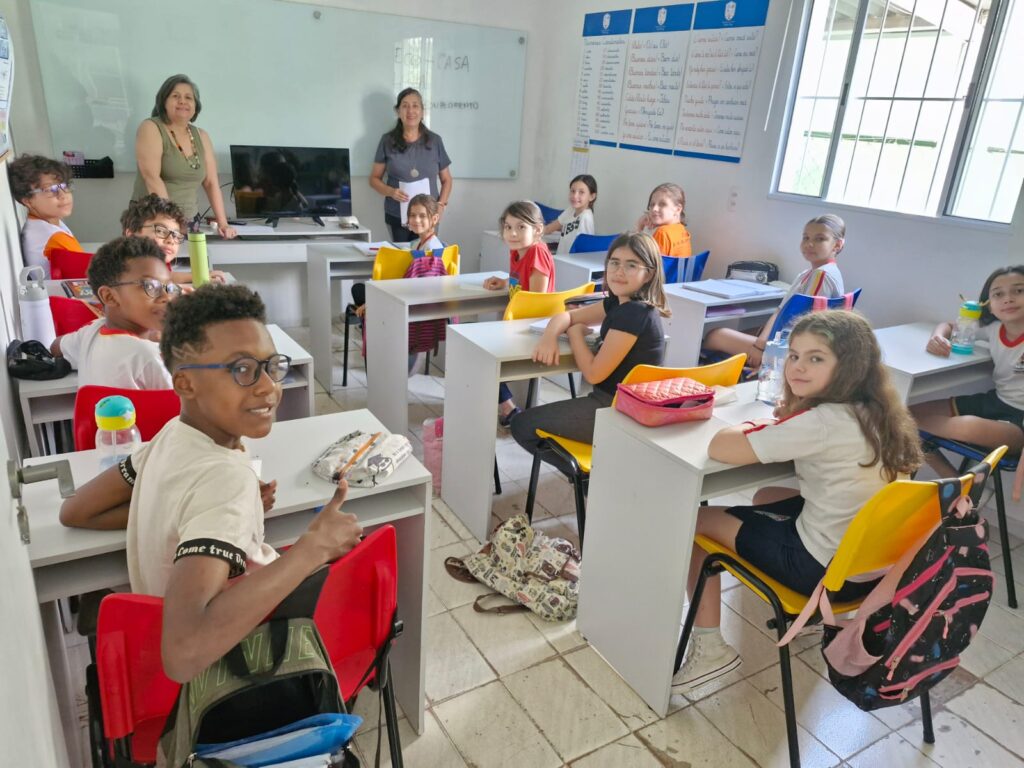
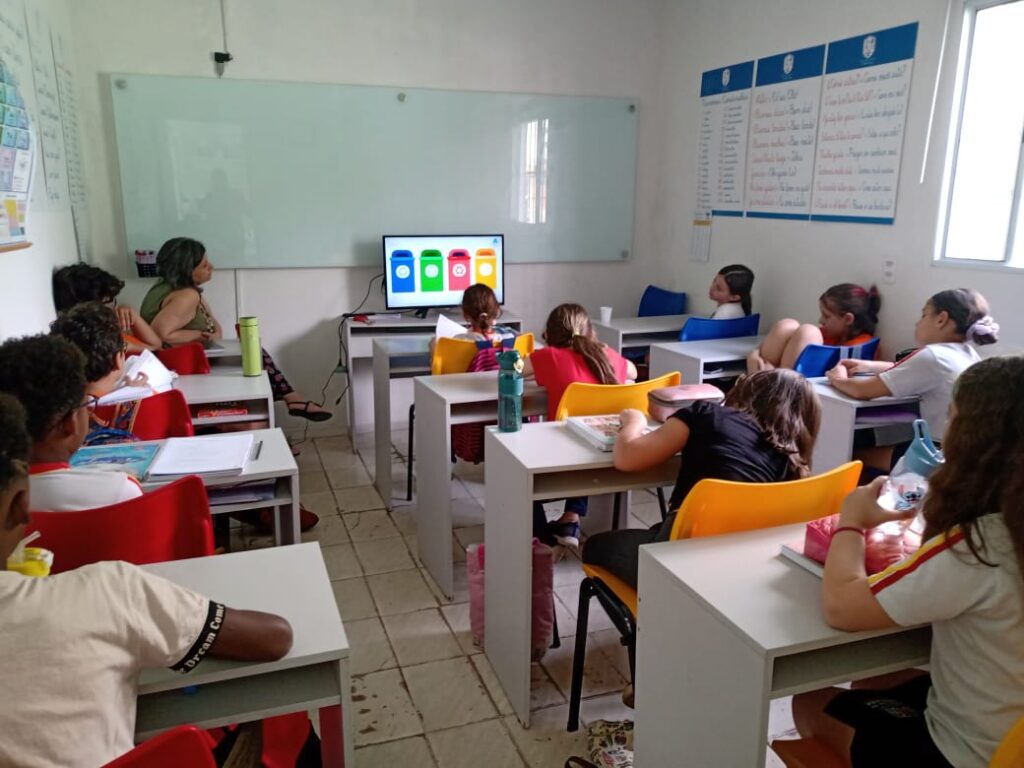
Our intention is to inspire other initiatives like ours, to make the project of Ecocitizenship an easy and accessible model for other educators who are interested in implementing it in their schools and communities.
Our project Ecocitizenship is aligned with the following United Nations sustainability goals:
- Reduce poverty: Donate what you don’t need;
- Quality Education: Free courses;
- Climate Action: Educate people about sustainable livelihoods; collection of recyclables and electronic equipment for reverse logistics
- Life on the planet: Plant trees and teach about the therapeutic use of teas and their health benefits; teach how to make compost.
- Partnerships: seek partnerships between government, civil society and companies to multiply actions to achieve the proposed objectives.
The pedagogical structure of the Peace Education project
We emphasize that the actions implemented in the Ecocitizenship are part of the Peace Education program which we have been carrying out since 2018 with the youngsters who attend classes at Educational Institute André Luiz. Therefore, the project takes place in a context where participants are invited to reflect on human values, non-violence, ethics, emotional intelligence, mental health, vocation, spirit of service, solidarity, respect for diversity, inclusion, ecology and citizenship.
Classes are held weekly in the format of dialogue circles where everyone is encouraged to share their opinions and ask questions about these and other topics. At the beginning of the year, we defined together the “Group Rules” where we list the actions that are desirable and those that are contrary to the group’s values. For example: it is not allowed to interrupt when a colleague is expressing their opinion, the use of profanity is not allowed, bullying is not acceptable, etc. The practice of dialogue is cultivated all the time, cooperation is valued more than competition, the exchange of knowledge between them is always encouraged and this promotes the recognition of individual talents and mutual admiration.
Contemplative Practices
Silent meditation practices and breathing exercises also take place regularly, this allows for anxiety relief and increases focus during activities. We noticed that after this brief break they became more relaxed, and the change in the group’s mood after practice was notable.
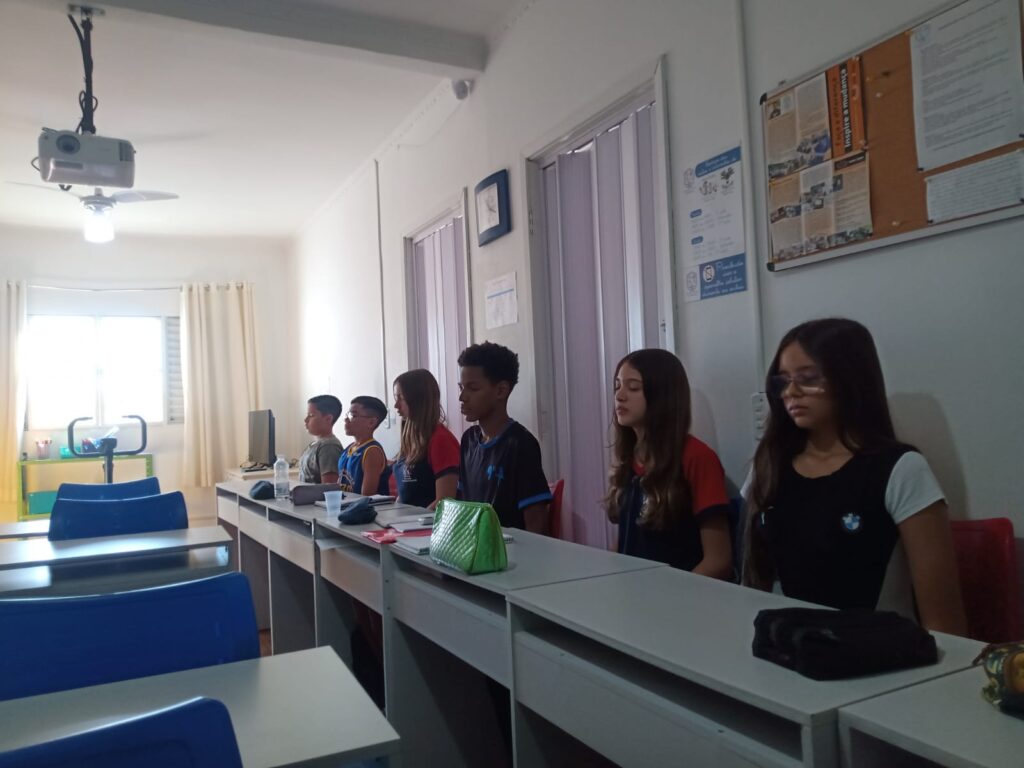
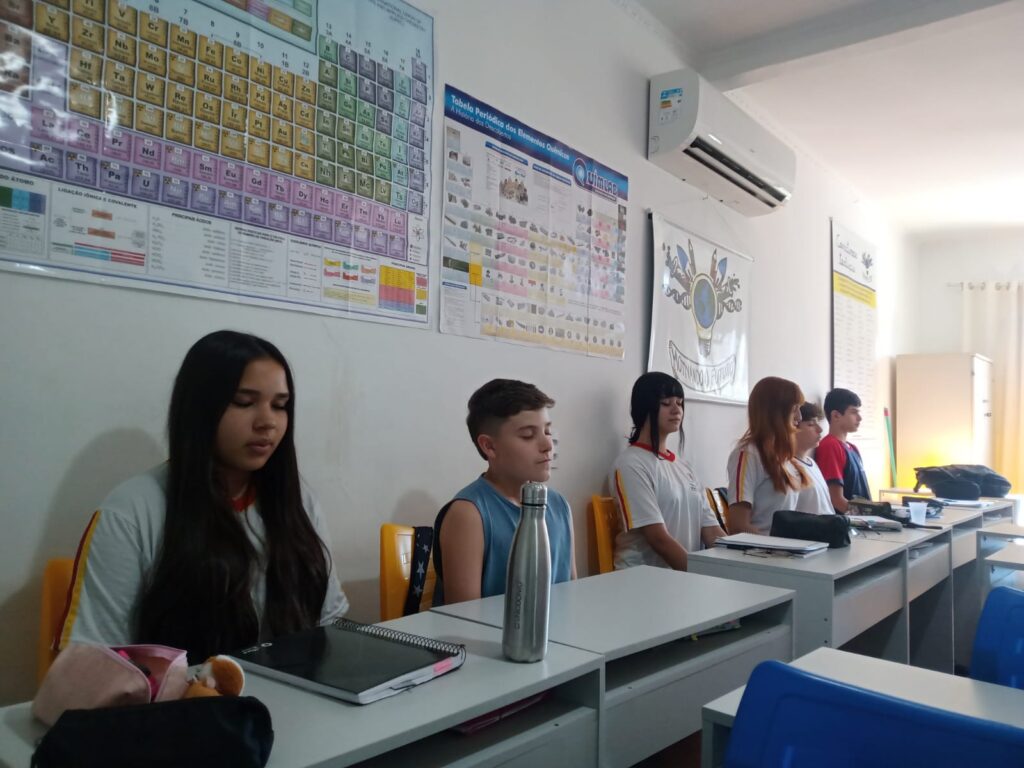
We do not apply tests, but throughout the year participants are invited to fill out questionnaires that help us understand how they are being impacted by the classes and the content presented.
Here is the testimonial of Amanda Castilho, 14 years old, “During our meetings we had a lot of cool things that led us to some learning in some way, but the meditations and presentations taught me and added to my life and I am sure that these teachings will be useful on many occasions.”
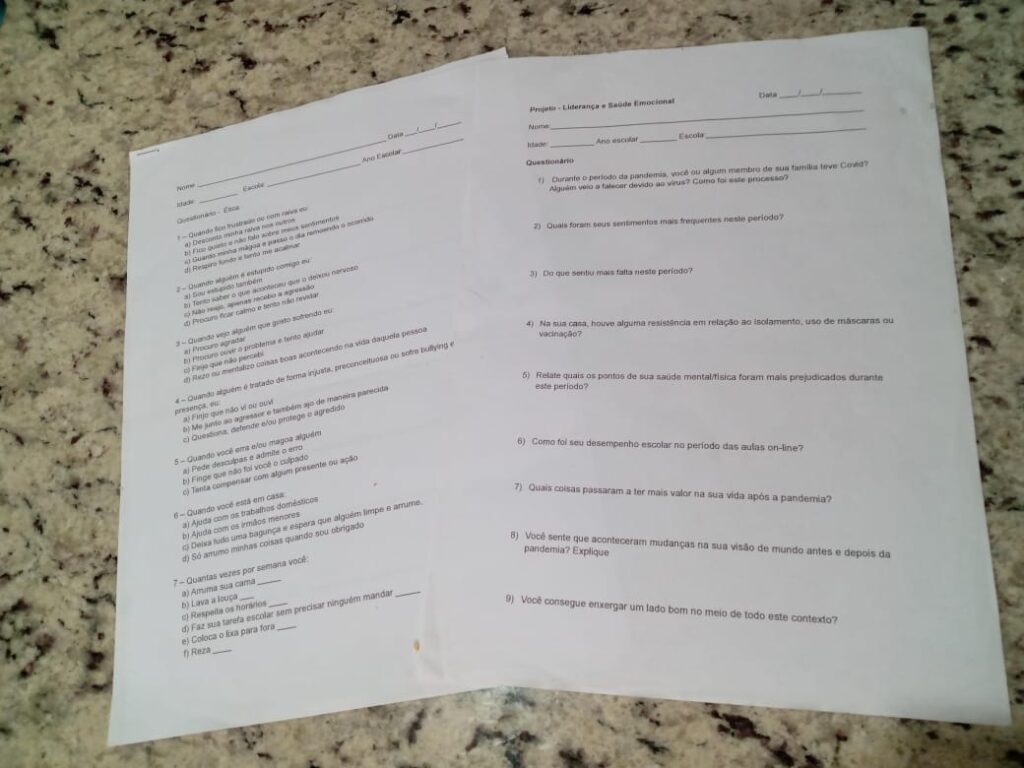
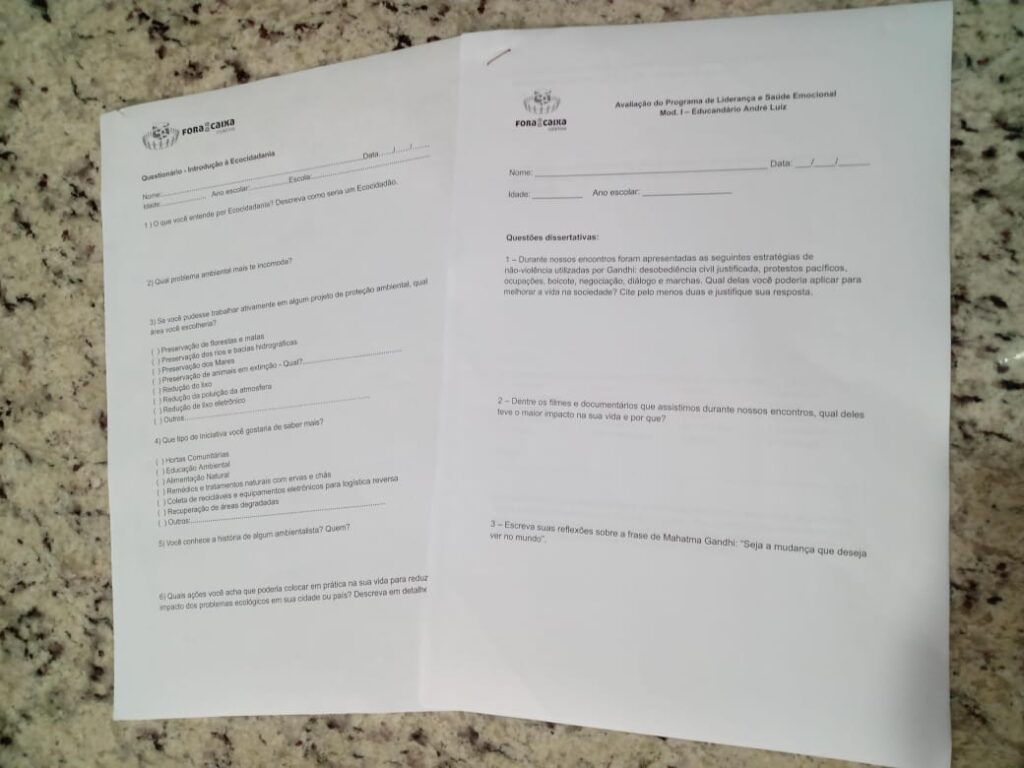
The pedagogical practice where they learn to share their skills in different subjects such as mathematics, physics, chemistry, etc. has proven to be very important for their self-esteem and also when choosing the professions they want to work in the future. Some of our students who got scholarships at private schools and are no longer included in the Institute as students end up returning to the project as teachers. We have some of them who decided to study Pedagogy due to the positive impact this experience had on their lives. Today we have teenagers teaching the young ones in various subjects. Closing a cycle of generosity and purpose, as they end up becoming volunteers in the project that enabled them to get scholarships at the best schools and universities in the country.
Artistic expression is one of the tools we use to minimize anxiety and reduce the symptoms of stress. Painting also helps to increase focus and reveals individualities in the form of colors and nuances. Even when the chosen models are the same, each one’s expression is unique.
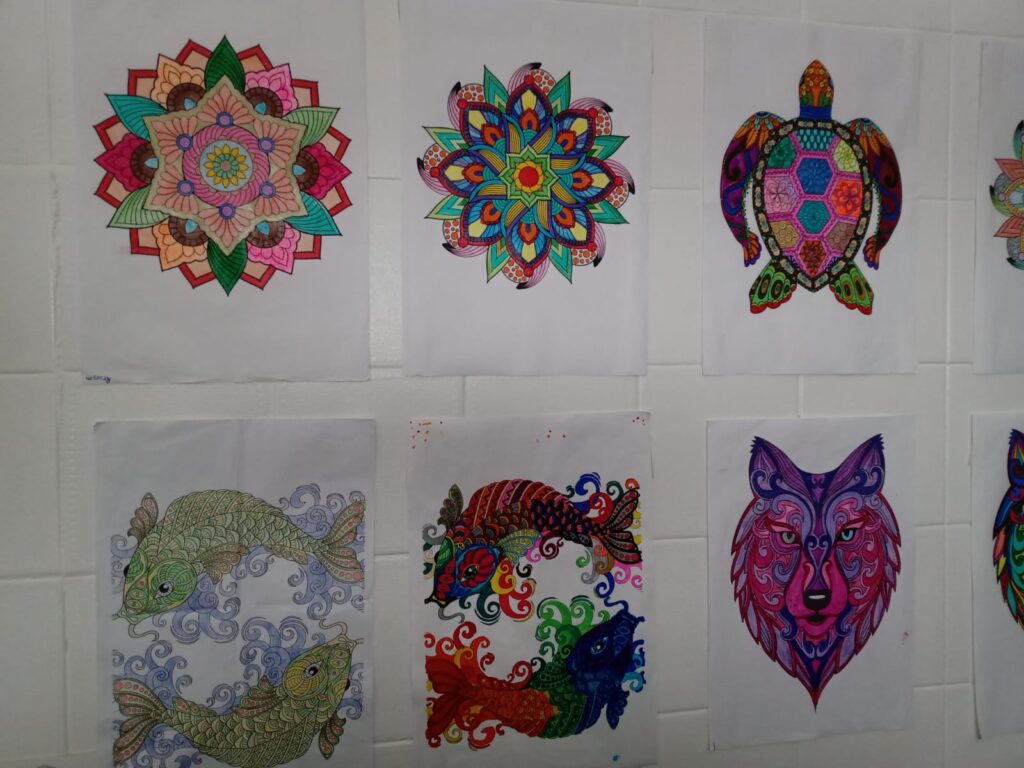
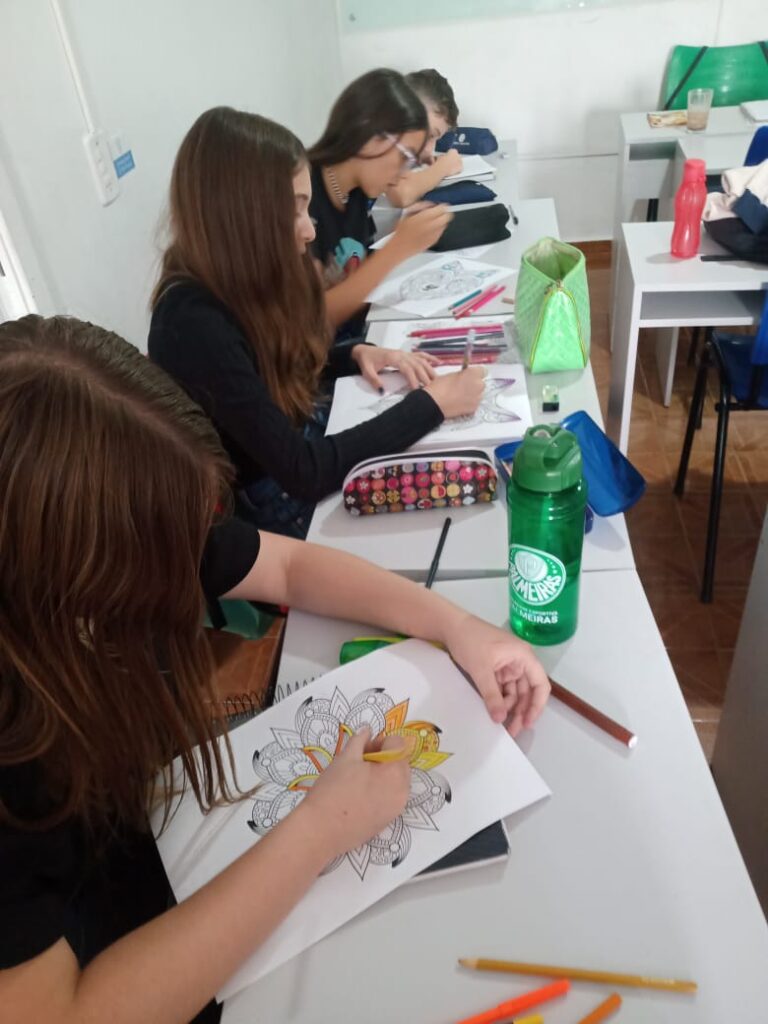
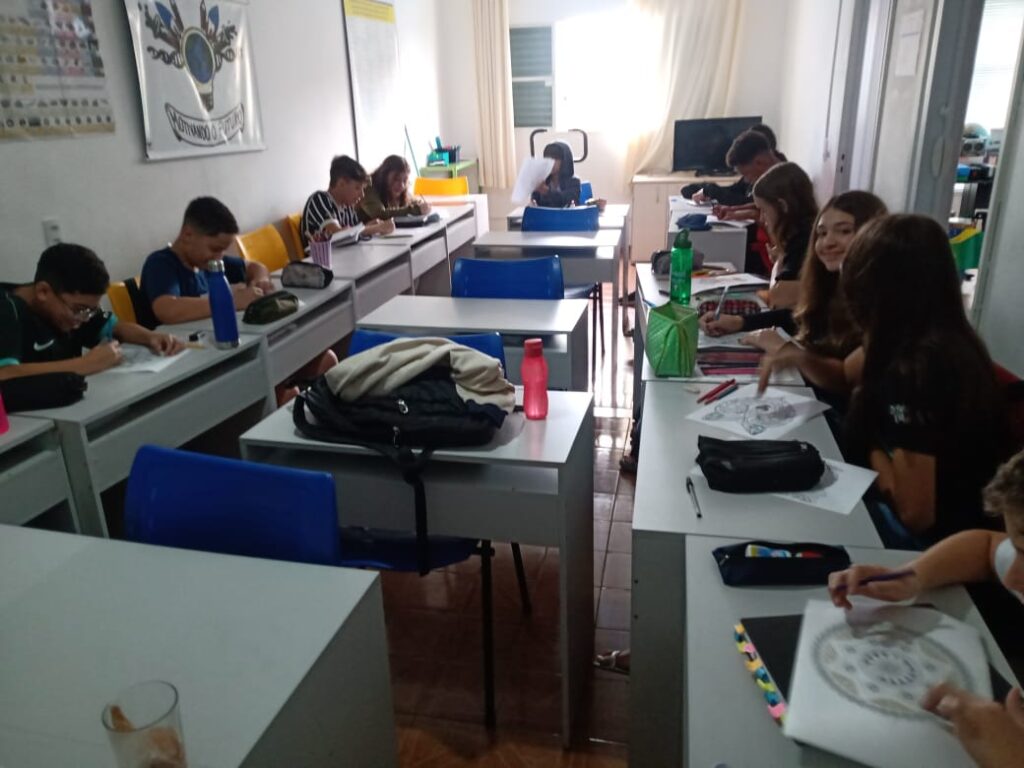
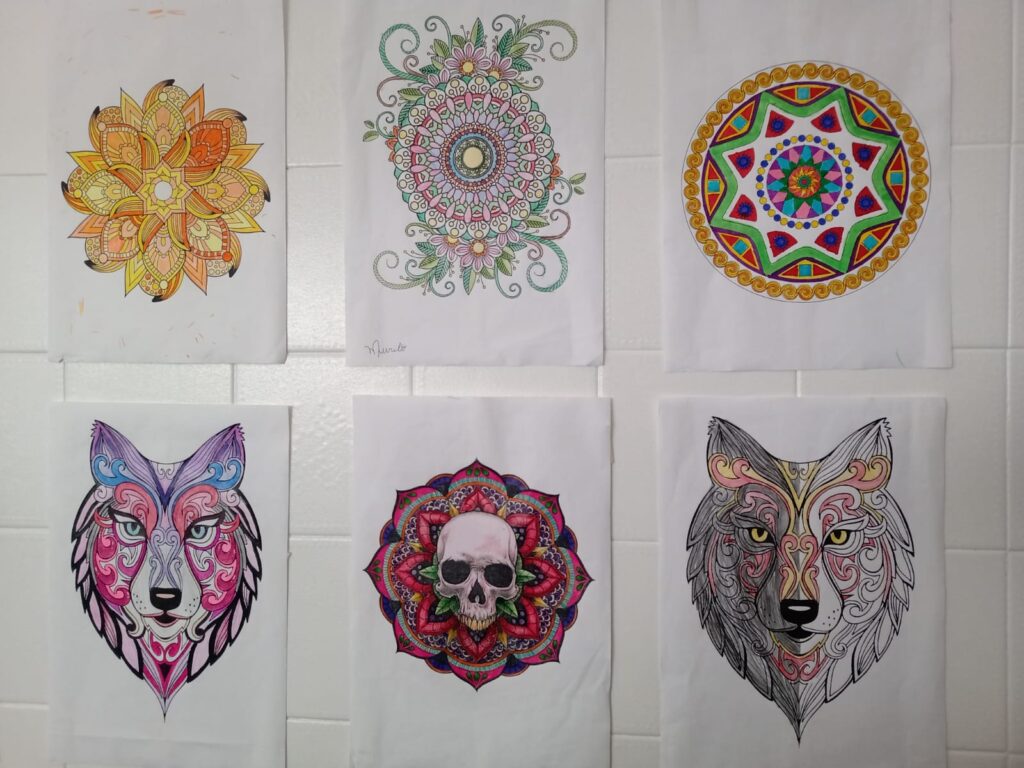
Just like in Nature, diversity is what generates the beauty and health of an environment. In societies we should also understand and respect this principle, instead of excluding ideas and opinions different from ours we should try to learn from the multiple possibilities of expression and points of view.
On several occasions we presented documentaries on issues such as recycling, sustainable agriculture models, actions by environmentalists on the climate crisis and we reflected on the situation of indigenous peoples in our country. We observed a change in young people’s attitudes towards environmental and ethical problems such as wars, conflicts, prejudices, religious intolerance and political positions.
Below they watch a Ted Talk with Greta Thumberg.
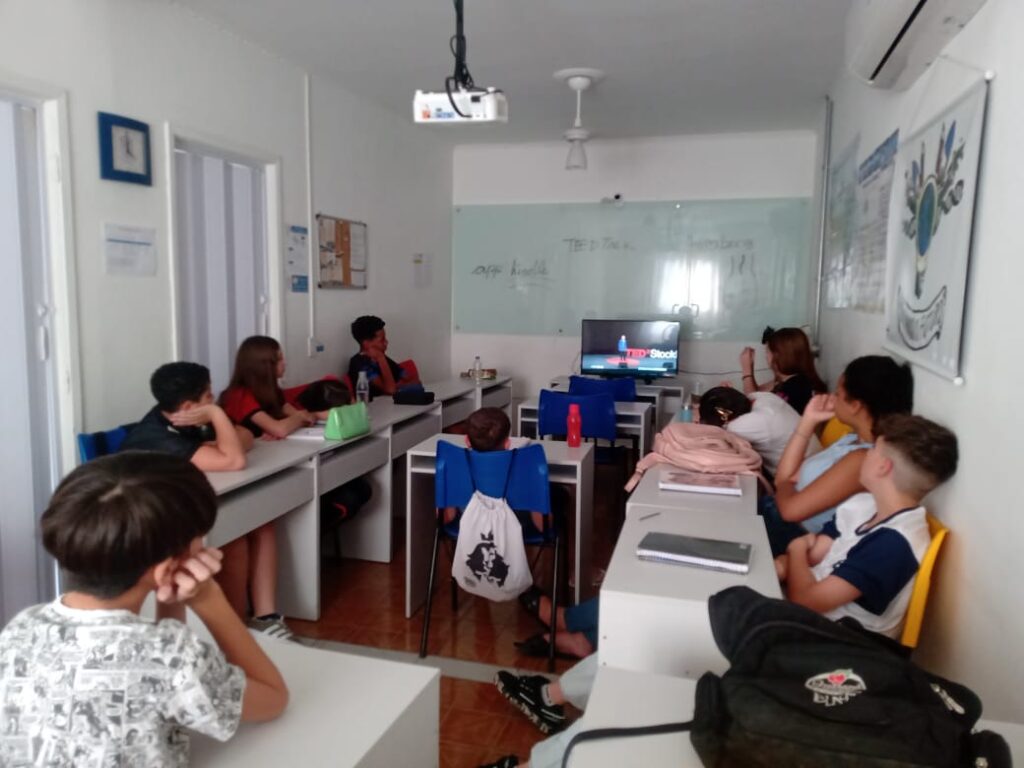
Among the videos that participants watched were the documentaries “Kiss the Ground” and “Our Daily Waste”, both of which present excellent reflections on the environmental future of the planet. In addition, of course, the Peace Education content is inspired by the movements to achieve civil rights through Non-violence, with an introduction to the thoughts of Mahatma Gandhi, Martin Luther King, Nelson Mandela, Greta Thunberg, Malala, etc. The young people researched and made presentations about these and other important personalities for humanity.
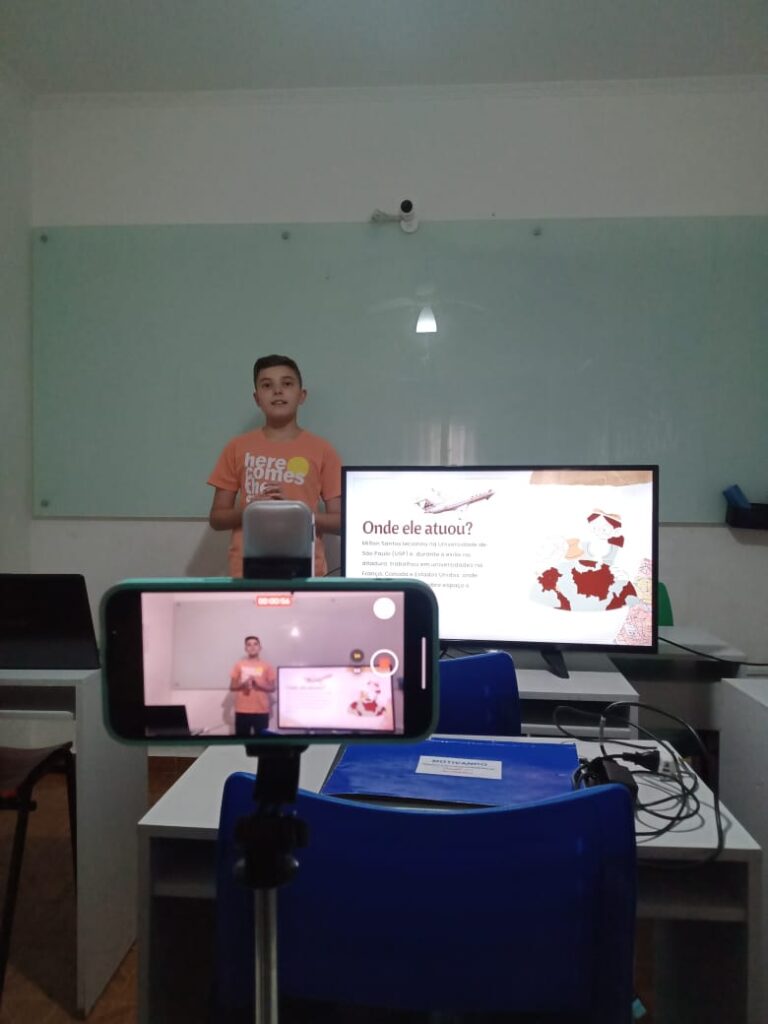
We believe in the power of example and realize the impact that extraordinary beings like Mahatma Gandhi and Martin Luther King often have on the lives and personalities of young people. When we ask in a room of participants aged between 10 and 17 who is the most inspiring human being they have ever had the opportunity to meet, Mahatma Gandhi comes first and Martin Luther King comes second.

Miguel Souza, 11 years old

Walacy Lopes Souza, 11 years old
These testimonials can be found in the responses to the program evaluation questionnaires and the content presented during the meetings. This leaves us with a heart full of joy, in times of so many empty and insignificant “influencers” in the world, seeing young people be inspired by Mahatma Gandhi, Martin Luther King and Nelson Mandela for our team is worth more than gold! The moral strength that emanates from these leaders leaves an indelible mark on the souls of young people and this will certainly be carried throughout their lives. Among the research carried out by the participants and presentations on the personalities who are inspiration to the world are: Malala, Nelson Mandela, Mahatma Gandhi, Martin Luther King, Mother Teresa of Calcutta, Sister Dulce, Greta Thunberg, Paulo Freire, Chico Mendes, Milton Santos , Nise da Silveira and Chico Xavier. Below are some of the presentations.
Presentation by Walacy Souza (11 years old) about Nelson Mandela
Presentation by Miguel Sousa N. Barros (12 years old) about Malala
Presentation by Sofia (12 years old) about Mother Tereza from Calcutta
Presentation by Luiz Miguel B. Sciroca, (13 years old) about Paulo Freire
Presentation by Aleph Miguel Bertolli (15 years old) about Martin Luther King Jr.
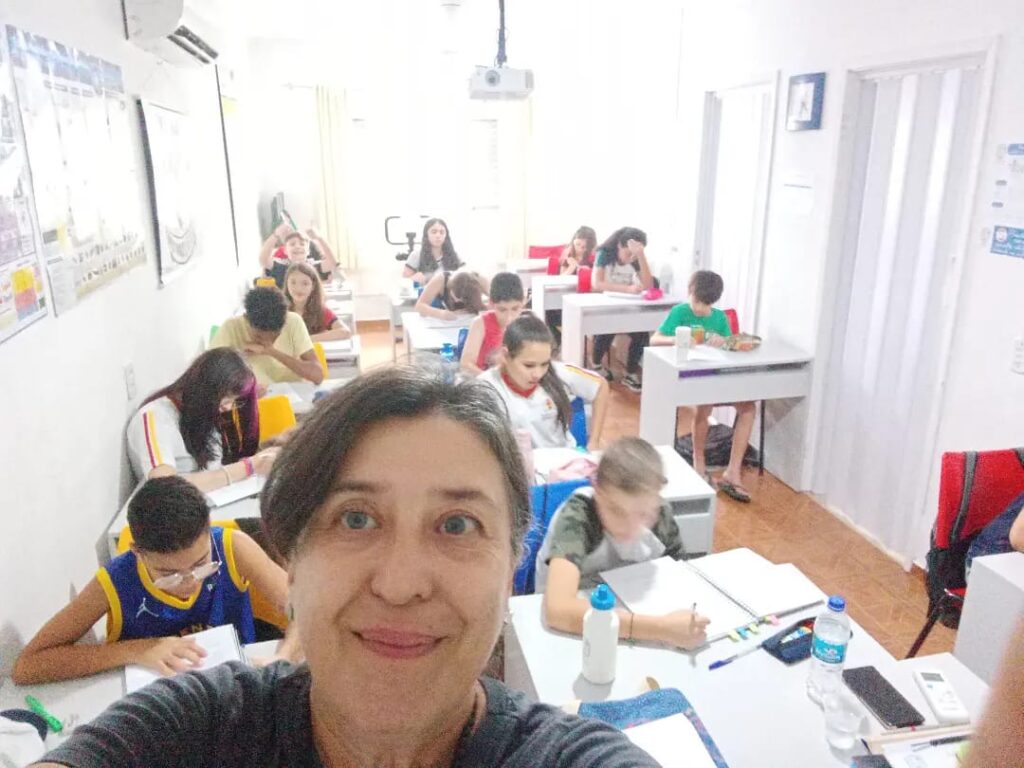
Young people who were previously indifferent and did not have any type of engagement focused on the conservation or protection of Nature felt empowered by the learning and the results of their actions. Among the topics on the climate crisis and environmental preservation that the young people researched and presented to the class are: Black Market of Wild Animals, Acid Rain, Deforestation, Irregular Occupation of Risk Areas, Desertification and Melting Poles. They also participated in the “Human Values” dynamic and the “Privilege Walk”, both with the aim of exploring situations of conflict and prejudice that can affect opportunities for personal and collective evolution in the community.
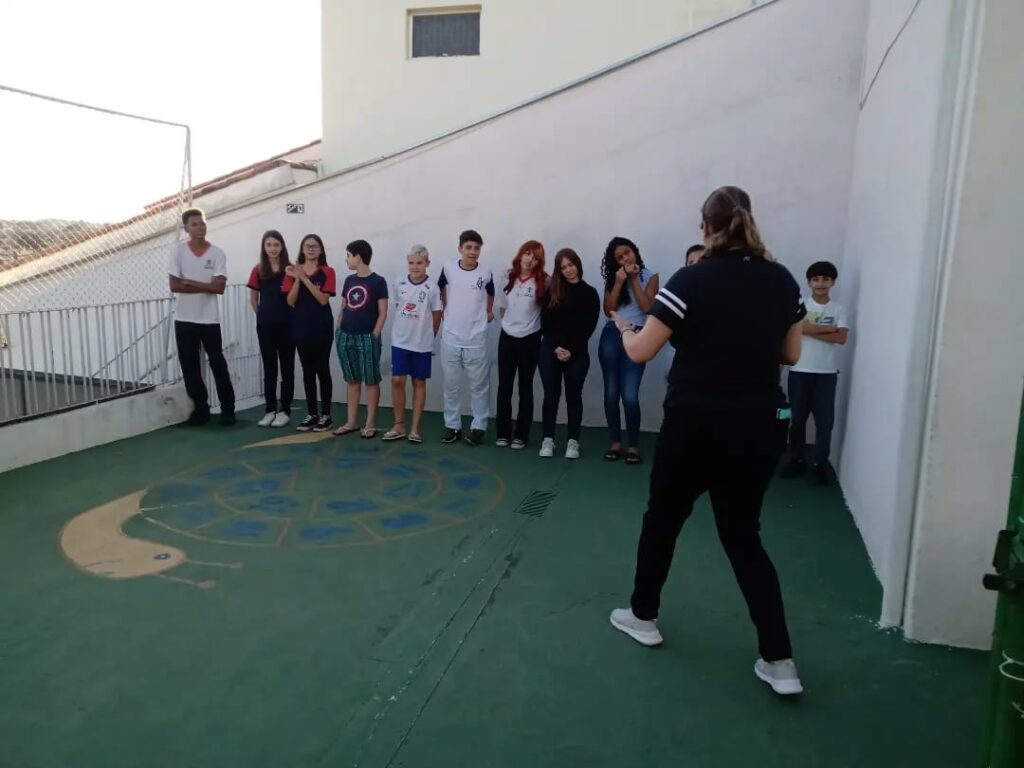
Feedback from the students
Through the answers to the questionnaires we can see how our meetings are influencing and inspiring changes in the participants.
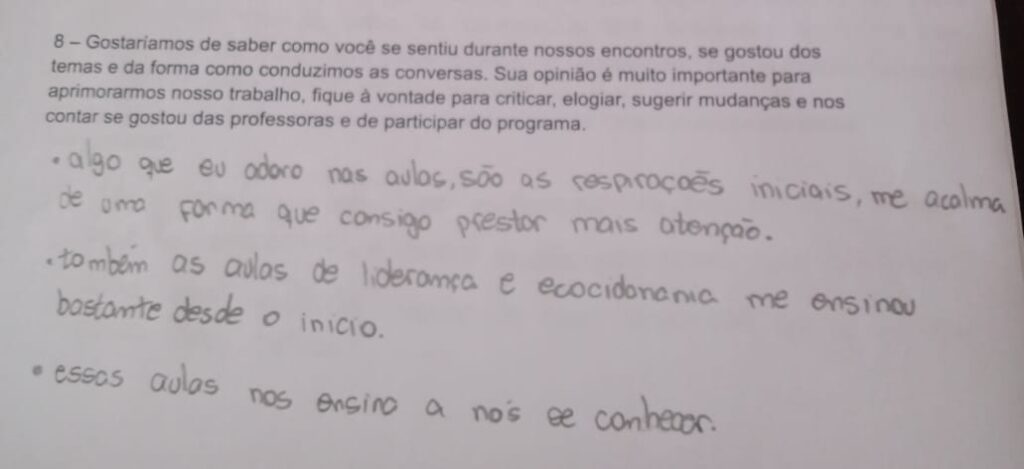
Amanda Castilho Cordeiro, 14 years old
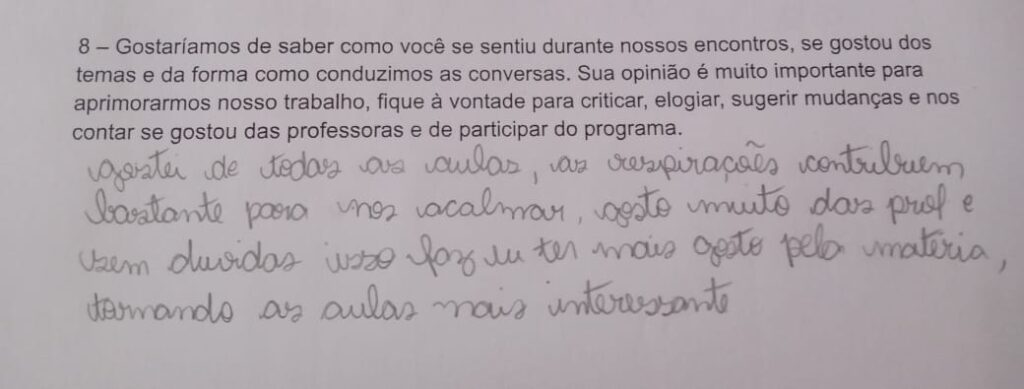
Isabela Vitória, 15 years old
Empowerment and Solidarity
At the end of this year’s program meetings, we had the group’s grateful decision to donate the amount accumulated from the sale of recycled materials, which in fact greatly exceeded our expectations, the amount of R$ 500,00 will be donated to Institute to help with renovation expenses and improving the environment where they study and receive all pedagogical support free of charge. Through their actions, the youngsters managed to leave the passive position, where everything was offered to them free of charge without them being able, by themselves, to contribute to the maintenance of the entity and became collaborators, co-creators of the space’s improvements.
This empowerment is one of the objectives we seek in our training program. Education for Peace, we need to help them get out of their posture of inertia in relation to the world’s problems, whether local or global, by participating in movements that seek change in a peaceful and non-violent way. This way, they will be able to move from being victims of circumstances to taking on a leading role. To achieve this realization, they first need to understand the dynamics of society and critically mature in life.
English Classes
Our students also learn to speak English with the method Bright Way. Classes are taught by teacher Mirela Proença, who is part of the Fora da Caixa collective team. During classes they learn to communicate, learn the rules of grammar and, above all, understand the fundamentals of the English language. We are aware of the need to speak English fluently so that in the future they can achieve good academic and professional results.
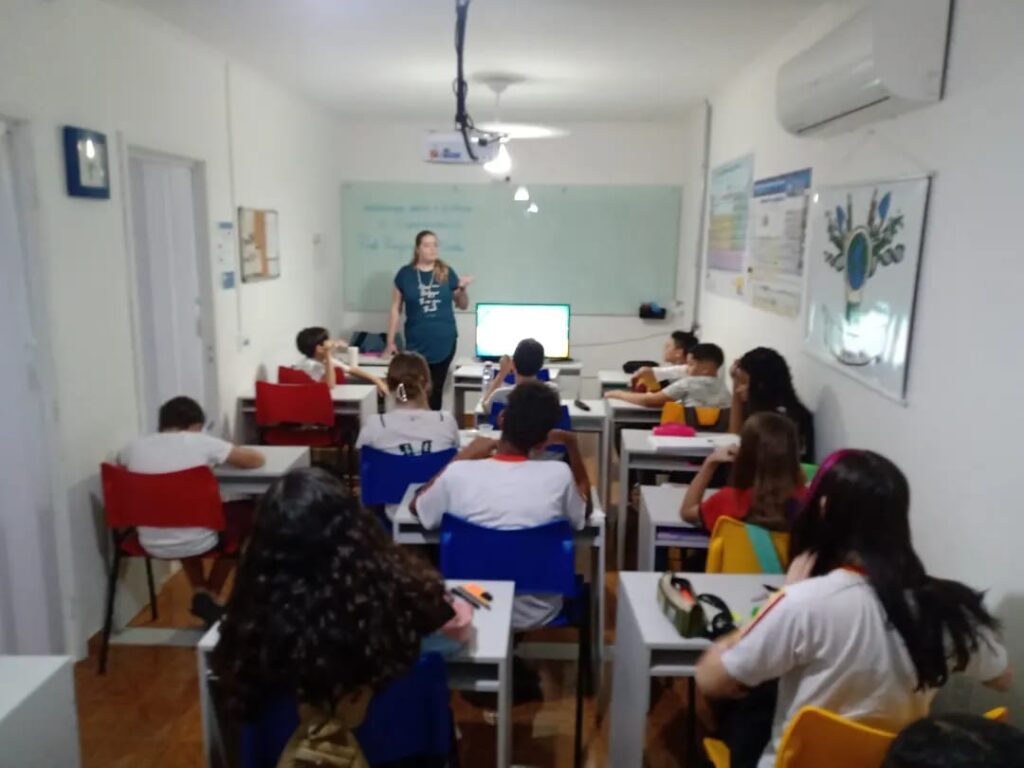
The important things schools don’t teach
Much of the pedagogical process in formal schools has become just a means of preparing individuals for the job market. Maintaining an attitude where they are treated as clients and/or consumers, disconnected from their vocations and talents when making their choices. Individual issues are not treated with a deeper look, there are many subjects that the school fails to address because they are not included in the curriculum. The emotional difficulties of children and young people are often considered “parents’ problems”, as I myself heard from a coordinator. The school simply ignores or turns a blind eye to situations of bullying, intolerance, drug use, self-harm and lack of motivation to attend classes. Young people who do not have a support network at school or at home are more vulnerable and will not be prepared to deal with the challenges of adult life in a resilient way and with the necessary emotional intelligence. It is almost a miracle that they do not become selfish, aggressive adults, compulsive consumers and indifferent to the problems of the community and the planet.
Cultivating generosity, companionship, compassion, collective responsibility and emotional intelligence can prevent many of the problems we currently face, the sooner they are encouraged to think of the world as an extension of their own home the better!
Thinking and acting outside the box
It is precisely because we are disconnected from the formal education system that we are able to carry out our projects. We are independent and free to put into practice the highest ideals of ecology, ecumenism, ethics and healthy coexistence. In an increasingly divided and polarized world, with governments that show contempt towards minorities, immigrants, who pride themselves on being denialists and intolerant, which finance wars and conflicts, we feel a deep call to multiply and expand our Peace Education programs. It is a moral obligation, an exercise in peaceful resistance and compassion in practice.
Thanks to the commitment and dedication of the team at Cultural Collective Outside the Box, together with the founders of Educational and André Luiz Institute, Ana Paula Cardoso and Pedro Henrique Cardoso, our hope for a better future is renewed! We remind you that everyone involved in the Peace Education project and the Educational Institute team is made up of volunteers. The participating children and youngsters come from the public education network and participate in the activities free of charge.
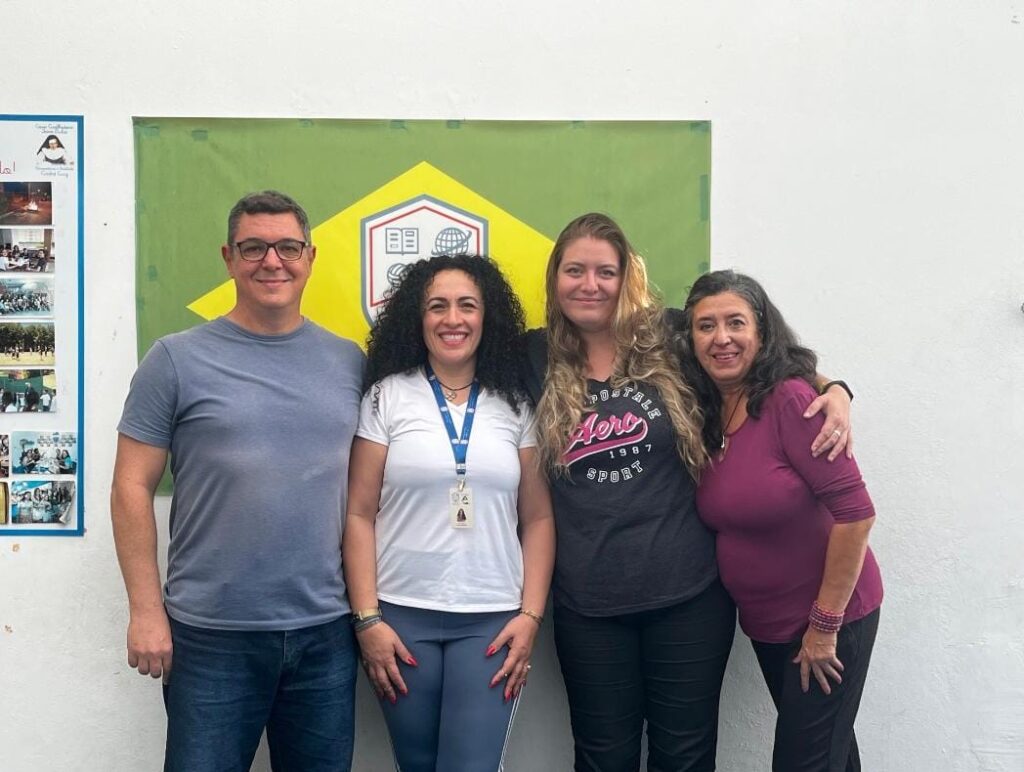
In the photo: Ricardo Albuquerque, Ana Paula Cardoso, Mirela Proença and Regina Proença.
Our group at the last meeting of 2024, they had sweets, ice cream, lots of hugs and emotions.
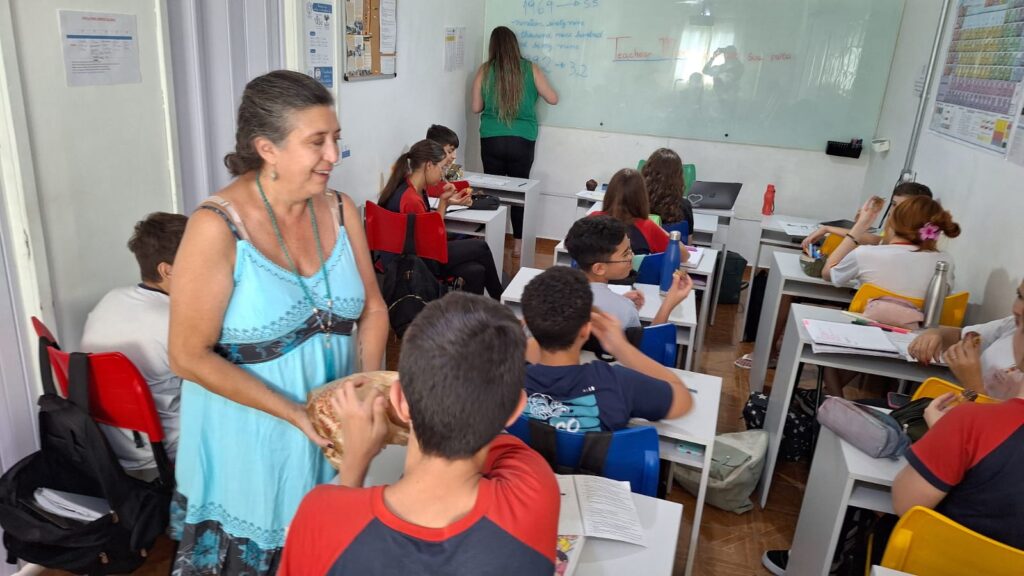
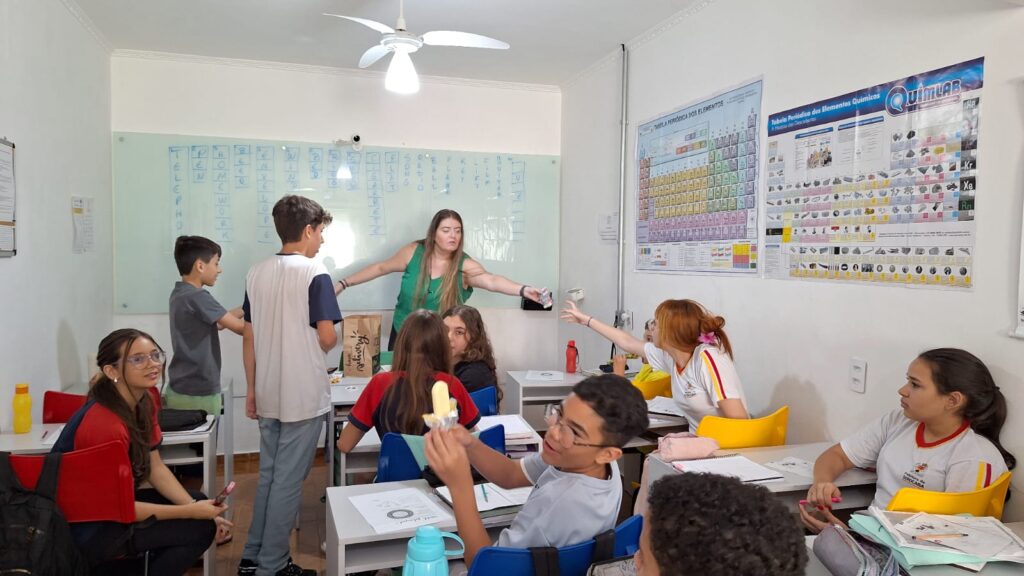
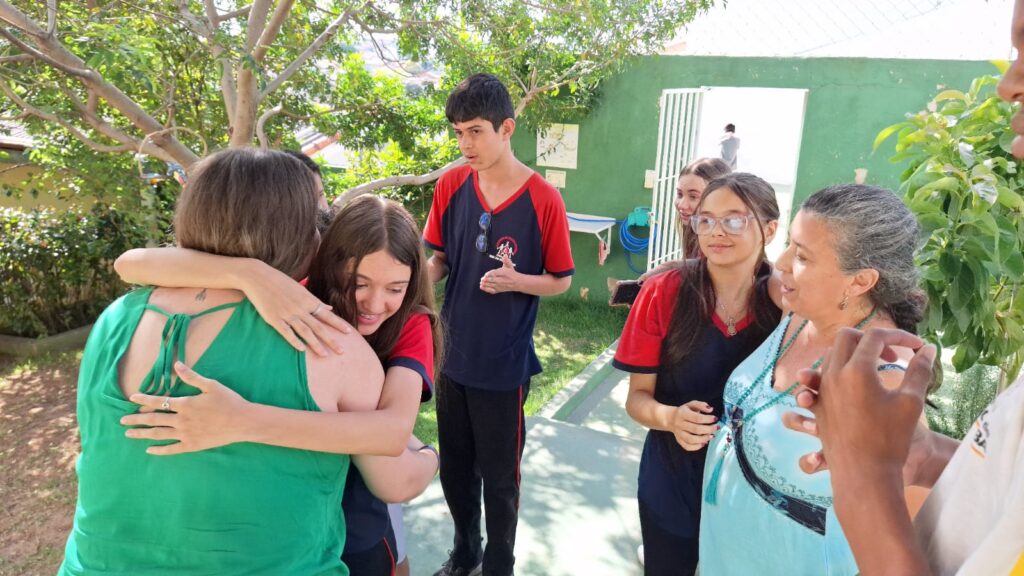
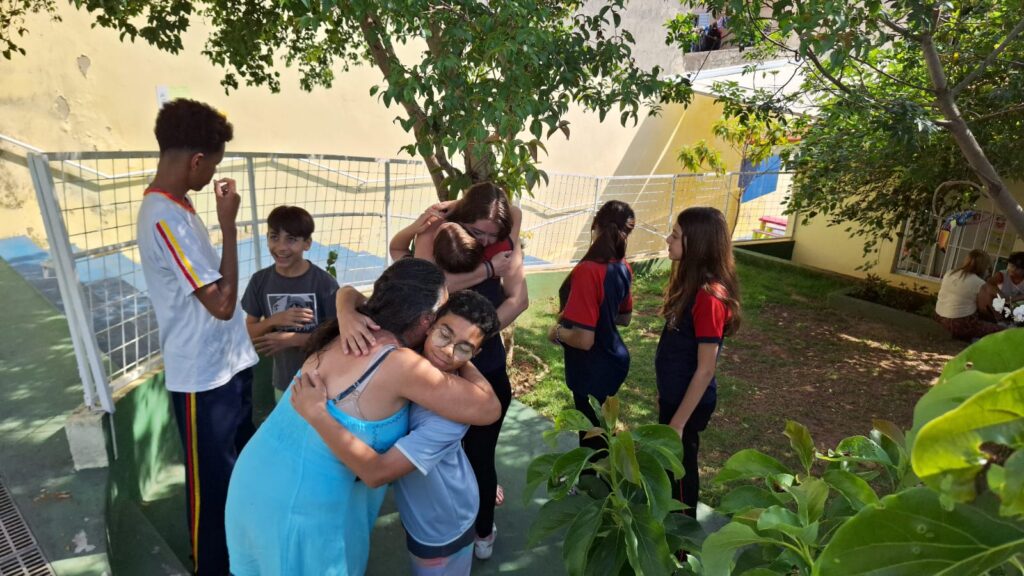
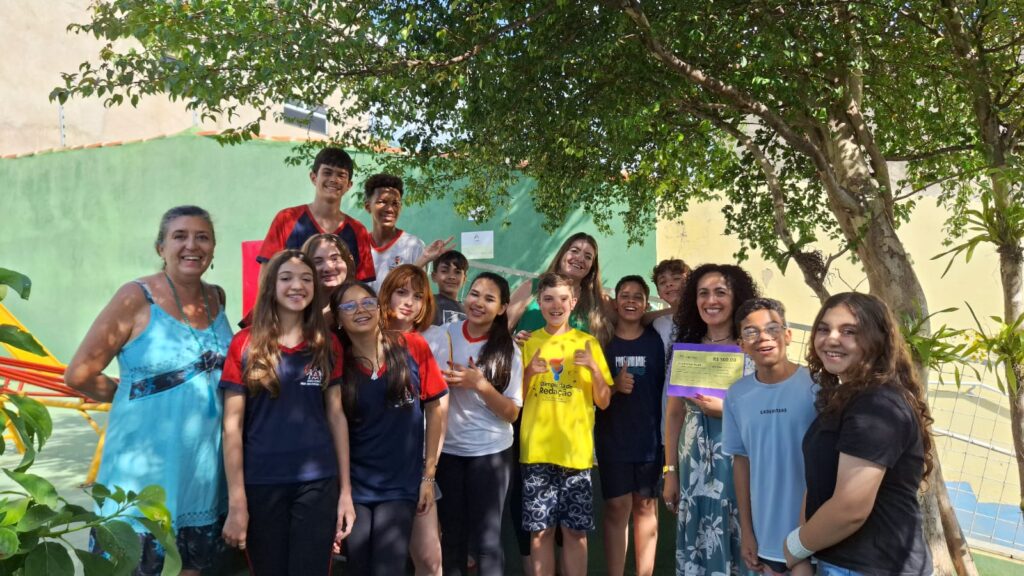
New challenges in 2025
Our intention is to expand our program and include all children who are attending the Institute. There will be two groups, the children from “Sementinhas” (Little Seeds) who are between 6 and 10 years old, and “Motivando o Futuro” (Motivating the Future) with participants between 11 and 17 years old.
In addition to the continuity of the Peace Education, Ecocitizenship and English Classes, we will introduce the project Media Minds, which will be developed by Ricardo Albuquerque and will cover essential computing concepts, the use of software for academic presentations and Canva, an online tool for creating graphic design. Furthermore, we will see how to use Artificial Intelligence in a responsible and ethical way. We are very excited to integrate this learning into our program, it will certainly be very useful and will add a lot to the academic and personal lives of our students.
For each child and teenager whose lives are transformed through the union of our projects, we feel that our purpose is strengthened. The international recognition of our work at the event held in August 2024 by the International Institute on Peace Education in Nepal and the invitation to present our program in World Forum 2025 already University Azim Awards in Bangalore, India, with the support of Dalai Lama Trust shows us that we are on the right path.
We know that the challenges are immense, but we are also aware that programs like ours will be increasingly necessary if we wish to create a more sustainable, fair, equitable and non-violent planet. The responsibility lies with everyone and the good results can be harvested by the community and future generations.
In the name of peace,
Regina Proença


